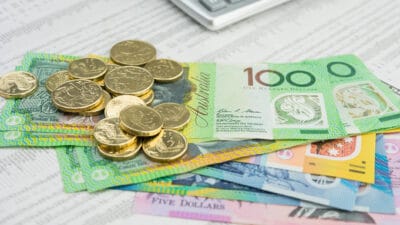There is a definite event that will signal when to sell your shares, according to one fund manager.
Both Australian and US shares have been on a tear this year. First they hit historic highs in February, then after a COVID-19 crash in March the markets again rocketed upwards.
Nucleus Wealth head of investments Damien Klassen said that just before the pandemic hit, the debt cycle seemed to be nearing the end. That is, businesses and consumers were nearing a time when they would pay down their debts.
But the coronavirus put a rude stop to usual cycles, and lit the share markets on fire.
"Swift intervention by central banks and governments hit pause on the start of deleveraging," he said in a memo to investors this week.
"They threw a lot of money at the economy… cushioning the blow for people who suffered from the shutdown. But a significant amount also ended up with people who didn't suffer. Also, without travel, many more affluent people travelled less and consequently increased their saving and investment."
Governments around the world also put in temporary protections to make evictions and bankruptcies more difficult. Banks provided pauses on loan repayments.
"The new rules prevented negative outcomes while encouraging positive ones. The stock market boomed."
Limiting short term pain at the expense of the economy
Governments and central banks seemed to have told themselves zombies are okay.
Zombie businesses are insolvent companies that should have died in normal times but are still trading recklessly thanks to temporary protections.
"Limit bankruptcies. Increase debt. Never raise interest rates again," said Klassen.
"It doesn't make for a healthy economy. But it limits short term pain, which appears to be the current goal of every politician."
The goal for policymakers, it seems, is to stop a standard business cycle from happening.
"The economic plan is to try to get a debt-funded consumer boom going so that bankruptcy protection and consumer support can be removed."
When to sell your shares
And this is why all investors should keep a close eye on how the government's management of the economy is going, according to Klassen.
"Policy mistakes are what matters from here," he said.
"Indications that a normal business cycle is occurring will be a sign to sell. Too much support and markets will grind higher."
Klassen's fund has had "minimal participation" in the share market recovery since March.
"And, to date, we have been wrong," he said.
"We did identify the most likely reason to be wrong would be if governments would take ever more extreme steps to cancel capitalism. And that is what happened."
A zombie future is what we have around the world.
"The end game seems to be a cohort of zombie consumers and businesses. Weighed down by debt burdens too massive to ever pay off, but supported by interest rates low enough to keep them from defaulting."









